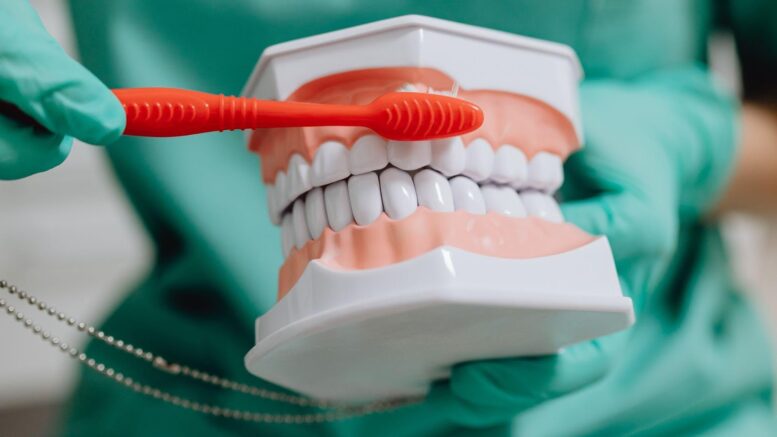Periodontics plays a crucial role in maintaining oral health, preventing tooth loss, and promoting overall well-being. This article aims to provide an informative and detailed account of the vital importance of periodontics beyond brushing.
By understanding the link between oral health and overall health, as well as the hidden dangers of gum disease, readers will gain insight into the necessity of periodontal treatments.
Furthermore, this article will explore the latest advances in periodontal care and emphasize the significance of regular dental check-ups for optimal periodontal health.
The Link Between Oral Health and Overall Health
The relationship between oral health and overall health is a topic of significant interest in the field of periodontics. Maintaining good oral hygiene is not only important for preventing dental diseases but also for promoting systemic health. Poor oral hygiene has been linked to various systemic conditions, including cardiovascular disease, diabetes, respiratory infections, and adverse pregnancy outcomes.
Dental plaque and inflammation play a crucial role in these associations. For instance, chronic periodontitis, characterized by the destruction of the supporting structures of teeth due to bacterial infection and inflammation, has been associated with an increased risk of developing heart disease and stroke. Furthermore, it has been suggested that the presence of periodontal pathogens in the bloodstream may contribute to systemic inflammation and endothelial dysfunction.
Therefore, maintaining proper oral hygiene practices is essential for overall health promotion and disease prevention.
The Hidden Dangers of Gum Disease
Undoubtedly, the hidden dangers of gum disease pose a significant threat to oral health. If left untreated, gum disease can have long-term effects on an individual’s overall well-being.
The inflammation and infection associated with gum disease can lead to the destruction of the supporting structures that hold teeth in place. This can result in tooth loss and impaired chewing ability, affecting one’s nutrition and quality of life.
Furthermore, studies have shown that gum disease may also impact systemic diseases such as cardiovascular disease, diabetes, respiratory infections, and adverse pregnancy outcomes. The exact mechanisms linking these conditions are not fully understood but are thought to involve the spread of oral bacteria or inflammatory mediators from infected gums into the bloodstream.
Therefore, it is crucial to address gum disease promptly through regular dental visits and proper oral hygiene practices to prevent its long-term consequences and potential impact on systemic health.
The Role of Periodontics in Preventing Tooth Loss
Prompt and appropriate treatment of gum disease can help prevent the loss of teeth. Gum disease, also known as periodontal disease, is a serious oral health condition that affects the gums and supporting structures of the teeth. If left untreated, it can lead to gum recession, where the gums pull away from the teeth and expose the roots. This can eventually result in tooth loss.
To prevent gum recession and subsequent tooth loss, various gum disease prevention techniques are recommended. These include practicing good oral hygiene by brushing twice a day with a soft-bristled toothbrush, flossing daily, and using an antiseptic mouthwash. Regular dental check-ups and professional cleanings are also crucial for detecting early signs of gum disease and addressing them promptly.
Additionally, avoiding tobacco use and maintaining a healthy diet can contribute to overall gum health and decrease the risk of developing periodontal problems leading to tooth loss.
The Latest Advances in Periodontal Treatments
Recent advancements in periodontal treatments have shown promising results in improving gum health and preventing tooth loss. New techniques and innovative therapies are being developed to address the challenges faced by individuals with periodontal disease.
One such technique is laser-assisted periodontal therapy, which utilizes laser energy to remove infected tissue and promote healing. This minimally invasive approach offers several advantages, including reduced discomfort and faster recovery time compared to traditional surgical methods.
Another emerging therapy is the use of growth factors, such as platelet-rich plasma (PRP) and platelet-rich fibrin (PRF), which promote tissue regeneration and enhance wound healing. These biologically active substances are derived from a patient’s own blood, making them safe and effective for long-term use.
Overall, these advancements in periodontal treatments hold great promise for improving oral health outcomes and preserving natural teeth.
The Importance of Regular Dental Check-ups for Periodontal Health
Regular dental check-ups play a crucial role in monitoring and maintaining periodontal health. These routine visits allow for the early detection of any potential issues, enabling timely intervention and preventing the progression of periodontal diseases. Early intervention offers numerous benefits, including less invasive treatment options, reduced risk of tooth loss, and improved overall oral health.
Furthermore, regular dental check-ups provide an opportunity for dentists to educate patients about the impact of lifestyle choices on their periodontal health. Factors such as smoking, poor nutrition, and inadequate oral hygiene practices can significantly contribute to the development and progression of periodontal diseases. Through patient education, dentists can help individuals make informed decisions regarding their oral health habits and encourage positive changes that promote optimal periodontal well-being.
Thus, regular dental check-ups serve as a vital tool in ensuring early intervention and promoting healthy lifestyles for better periodontal health.
